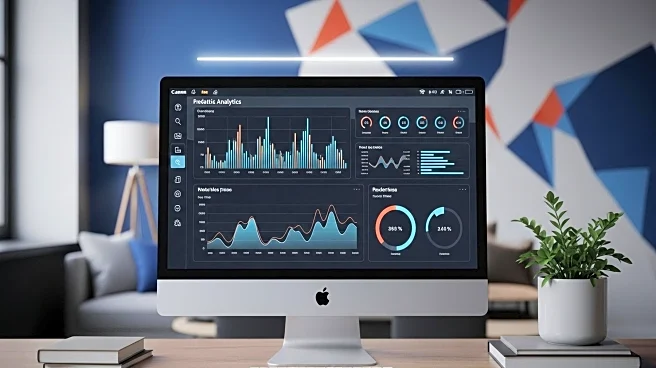What's Happening?
Human Resource Technology (HR Tech) is increasingly being recognized as a strategic tool rather than just a back-office convenience. According to a U.S. Bureau of Labor Statistics analysis, a rise in remote work correlates with increased productivity across industries. HR Tech is evolving to encompass recruitment, performance, skill development, retention, and workforce intelligence. The State of Digital HR report by AIHR highlights a significant increase in digital maturity within HR, with more organizations integrating digital strategies into their people management. Technologies such as Artificial Intelligence (AI), Machine Learning (ML), and cloud-based platforms are central to this transformation, enabling predictive analytics for attrition forecasting and skill gap identification. Automation and Robotic Process Automation (RPA) are streamlining repetitive tasks, allowing HR professionals to focus on strategic planning and employee engagement.
Why It's Important?
The shift in HR technology is crucial for enterprises aiming to enhance competitiveness and align human capital strategies with business objectives. Digital HR capabilities facilitate data-driven decision-making, global scaling, compliance risk reduction, and improved employee engagement. The integration of AI and predictive analytics in HR processes allows for proactive interventions in talent management, reducing turnover and optimizing recruitment. As HR technology becomes central to organizational strategy, industrial leaders must recognize its transformative potential in recruitment, compliance, workforce planning, and performance management. The growth of the global HR technology market, projected at a compound annual growth rate of 9.09% from 2024-2031, underscores its increasing importance.
What's Next?
Looking ahead, HR technology is expected to evolve with trends such as hyper-personalization, conversational interfaces, augmented analytics, and ethical AI. Platforms will likely offer personalized career paths and training programs, integrating employee preferences into benefits and schedules. Conversational AI and virtual assistants will manage queries and provide feedback, while predictive models will offer actionable recommendations for talent investment. Modular HR architectures will enable the adoption of best-of-breed components, enhancing agility and efficiency. As regulations around AI and data privacy increase, ethical considerations will become integral to HR technology development.
Beyond the Headlines
The adoption of HR technology presents challenges such as data privacy, cultural resistance, and integration issues. Ensuring compliance with regulations like GDPR and CCPA is essential to avoid legal risks. The skills gap within HR teams highlights the need for capability building alongside technology adoption. Ethical concerns around AI-based recruitment tools require transparency and bias mitigation. Measuring the return on investment for HR technology remains complex, as HR outcomes are harder to quantify compared to financial metrics.








